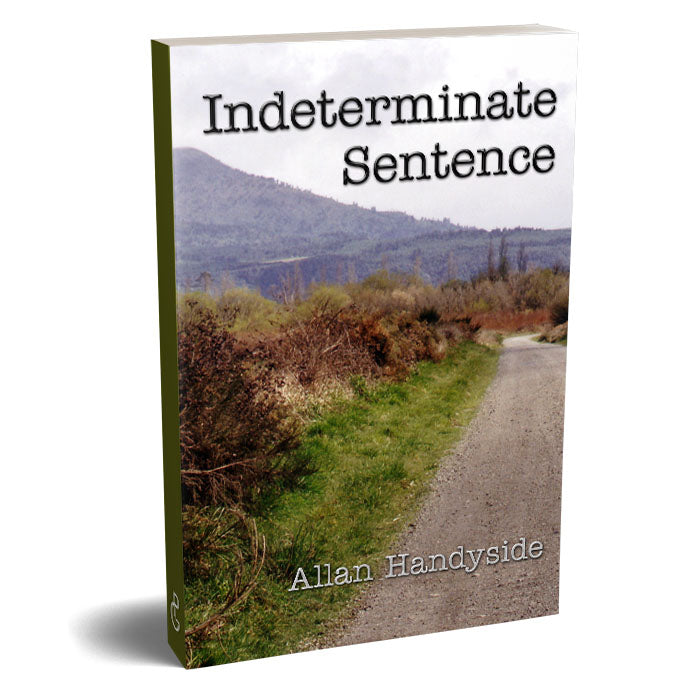Books and resources for ministers, worship leaders, church members and all spiritual people
Philip Garside Publishing Ltd
Indeterminate Sentence - Print.
Indeterminate Sentence - Print.
Couldn't load pickup availability
Indeterminate Sentence
A New Zealand World War II Conscientious Objector’s Story
By Allan Handyside
[4 only left in stock 11 August 2025.
Will not be reprinted]
A gripping first-hand account of courage, conviction, and endurance from a New Zealand pacifist imprisoned during World War II.
This book will help you:
- Understand the experiences of New Zealand’s WWII conscientious objectors.
- See how personal conviction can withstand extreme pressure and punishment.
- Appreciate the human rights issues faced during wartime.
- Gain insight into the daily life and discipline inside wartime prisons.
- Learn how solidarity and humour helped sustain morale among prisoners.
- Reflect on the ongoing relevance of peace movements.
- Recognise the personal and family costs of standing for one’s beliefs.
Features
- Honest, detailed memoir of nearly four years in Rangipo Prison.
- Vivid portrayal of the conditions, punishments, and resilience of COs.
- Anecdotes of secret communications and acts of defiance.
- Historical context on New Zealand’s treatment of pacifists during WWII.
- Foreword, preface, and index for reference.
122pp, 240 x 170mm
Soft cover
Includes: copies of official government correspondence, cartoons, photos, maps and index.
Published: December 2005
ISBN 9780958268219
Click for eBook
Description
During World War II, refusing to fight came at a heavy cost in New Zealand.
Indeterminate Sentence tells the compelling true story of Allan Handyside, who spent nearly four years behind bars for his pacifist convictions.
From 1942 to 1946, he was incarcerated in Rangipo Prison in the central North Island – one of about 800 conscientious objectors held in remote camps or prisons “for the duration” of the war.
In Britain and other Allied nations, COs often served in alternative capacities, but New Zealand’s politicians were far less tolerant.
Here, pacifists were denied basic rights, faced harsh discipline, and received no fixed release date – an indeterminate sentence.
Handyside recounts the bleakness of solitary confinement, bread-and-water rations, and daily prison life, yet also the camaraderie, humour, and ingenuity that sustained him.
One such example: the secret mail run between Hautu Detention Camp and Rangipo, never discovered by the authorities.
On release, even the colours of flowers and the sound of children’s laughter were overwhelming after years of institutional drabness.
The war left lasting marks on his relationships and deepened his commitment to peace advocacy, shaping the rest of his life.
This memoir is both a personal journey and a rare historical record, shining light on a little-known chapter of New Zealand history.
It shows how a small, determined group held fast to their beliefs despite public hostility and official repression – and why their message still matters today.
About the Author
Allan Handyside was a New Zealand conscientious objector during World War II, serving nearly four years in Rangipo Prison for his pacifist beliefs.
After the war, he remained committed to the peace movement, contributing to debates on nuclear policy and social justice.
His life’s work stands as a testament to the enduring power of personal conviction.
Contents
Foreword
Preface
1— And it was night
2 — War Renounced
3 — Uncouth Rangipo
4 — Help from Hautu
5 — The Regulation Game
6 — Plod and Plough
7 — Dismal Hautu
8 — Out of Bounds
9 — Cabinet Ministers
10 — Let my people go
11 — Protests Planned
12 — Truth jumps to conclusions
13 — Solitary Confinement
14 — Prisoner sues Jailer
15 — Shakes and Shocks
16 — Pressure and Response
17 — Parliament’s Bristling Debate
18 — Sincere or Insincere
19 — Family Tensions
20 — The A-Bomb
21 — When, Oh When?
22 — What of prison reform?
23 — Indeterminate Still
About this book
Index


